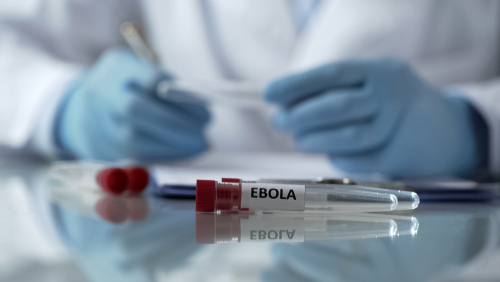
In two randomized, placebo-controlled trials of three Ebola vaccine administration regimens for adults and children, the Partnership for Research on Ebola Vaccination (PREVAC) recently published results concluding that all regimens were safe and effective.
Vaccine candidates included Ad26.ZEBOV, provided by Johnson & Johnson, followed eight weeks later with a booster dose of the MVA-BN-Filo vaccine from manufacturer Bavarian Nordic. Additionally, two doses of rVSVΔG-ZEBOV-GP, as manufactured by Merck Sharp & Dohme Corp, were separated by eight weeks. Others received a single dose of the Merck vaccine, followed eight weeks later by a placebo injection.
As published in the New England Journal of Medicine, this research found that antibodies were produced safely in response to the strategies beginning 14 days after the first vaccination, with continued detection at varying levels for a year after. Enrollment for these trials began simultaneously in 2017, incorporating a total of 1,400 adults and 1,401 children between 1 and 17 years old from Guinea, Liberia, Sierra Leone, and Mali.
The goal of those involved was to find the best means of countering outbreaks of Ebola. Partners for the trial gathered under PREVAC’s umbrella but included the U.S. National Institutes of Health (NIH), the French National Institute of Health and Medical Research, and the London School of Hygiene & Tropical Medicine. The trial in Liberia and Mali was sponsored by the U.S. National Institute of Allergy and Infectious Diseases (NIAID) in collaboration with the Liberia Ministry of Health. Efforts in Mali were undertaken in collaboration between the University Clinical Research Center and the Center for Vaccine Development-Mali.
All participants were randomized to receive two injections of either placebo or Ebola vaccine. The retention rate of these volunteers was high. Although this allowed much information on response times to injection, the trials were unable to showcase the level of antibody response correlating to vaccine-induced protection against Ebola since no participants contracted Ebola throughout tests.




